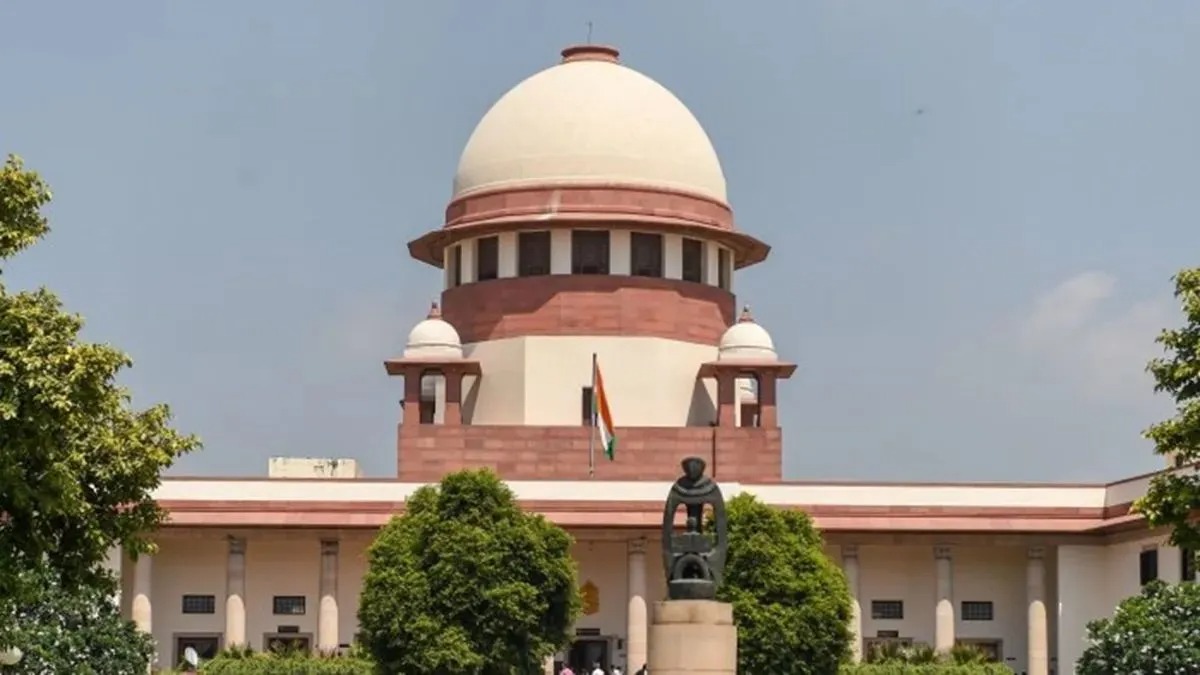
The Supreme Court will hear the Waqf Amendment Act for the second consecutive day today. It is believed that today the country's top court can issue an interim order in this matter. The Supreme Court can pass this interim order regarding de-notifying Waqf properties, not implementing new provisions during the collector's investigation and entry of non-Muslims in the Waqf Board and Council.
Earlier, a two-hour hearing was held in the Supreme Court on Wednesday against the Waqf Amendment Act. The Supreme Court has sought a reply from the Central Government on these petitions within two weeks. In yesterday's hearing, the Supreme Court has not put an immediate stay on the implementation of the law but has expressed concern over the violence happening across the country in protest against the Waqf Act.
72 petitions against Wakf Act
Earlier yesterday, a bench of Chief Justice Sanjiv Khanna, Justice Sanjay Kumar and Justice KV Vishwanathan heard 72 petitions against the constitutionality of the Waqf (Amendment) Act, 2025. After hearing the arguments of Solicitor General Tushar Mehta on behalf of the Center and senior advocates including Kapil Sibal, Rajiv Dhawan, Abhishek Singhvi, CU Singh on behalf of Muslim bodies and individual petitioners, the Chief Justice proposed to issue notice and pass an interim order and said that this would "balance the equalities".
allegations of violation of fundamental rights
The biggest allegation of the protesters was that the new Waqf law violates the fundamental rights of Muslims and discriminates against Muslims. They also argued that this law is unconstitutional and hence its implementation should be stopped. Solicitor General Tushar Mehta, on behalf of the central government, called this allegation baseless. After this, the bench said, some provisions of the new law are good, but some provisions like Waqf by user and non-Muslim members in the Waqf Board require clarification from the government.
The court asked the government what is the purpose of including non-Muslims in its Waqf Council? Will the government allow Muslims to be included in the boards of temples? After this, the Supreme Court said what will be the effect of ending the provision of Waqf by User? Will the properties which have been declared as Waqf property by the court also be de-notified under the new law? The Supreme Court asked where will the Waqf Board get the papers of the hundreds of years old historical buildings or properties which are with the Waqf? After this, the three-judge bench said that they want to pass an interim order in this case. On this, Solicitor General Tushar Mehta requested that he wants to put forward some more arguments in this case. If the Supreme Court wants, it can hear this case on a day to day basis. After this, the Chief Justice's bench decided to hear the case again on Thursday.
Kapil Sibal's argument
Kapil Sibal, who was arguing against the Waqf law, said that such a system did not exist 300 years ago, then from where will we get the deed of those mosques? On this, the Supreme Court asked the Center why Waqf by User was removed, then the Solicitor General said that the properties registered as Waqf will remain Waqf. The court asked what will happen to the properties registered as Waqf by User, then the Center said that the Collector will investigate the property and bring it on record. Kapil Sibal called the entry of non-Muslims in the board unconstitutional, then the Supreme Court asked the SG why the provision of non-Muslim members was made in the board? In response to this, the SG said that most of the members in the board are Muslims and the number of non-Muslim members will not exceed 2.
Earlier, the bench said, "Properties declared as waqf by the courts should not be de-notified as waqf, whether they are waqf by user or waqf by deed, although the court is hearing a petition challenging the Waqf Amendment Act 2025." The bench also indicated a stay on a provision of the amended law, which states that a waqf property will not be considered as waqf until the collector examines whether the property is government land or not.
The bench looked into the objections to the Act provision-wise and raised objections to several aspects of the law, including the inclusion of non-Muslims in the Central Wakf Council and state Wakf boards. It also raised objections to provisions empowering the district collector to settle disputes relating to Wakf properties and allowing de-notification of properties declared as Wakf by competent courts.
--Advertisement--

 Share
Share



